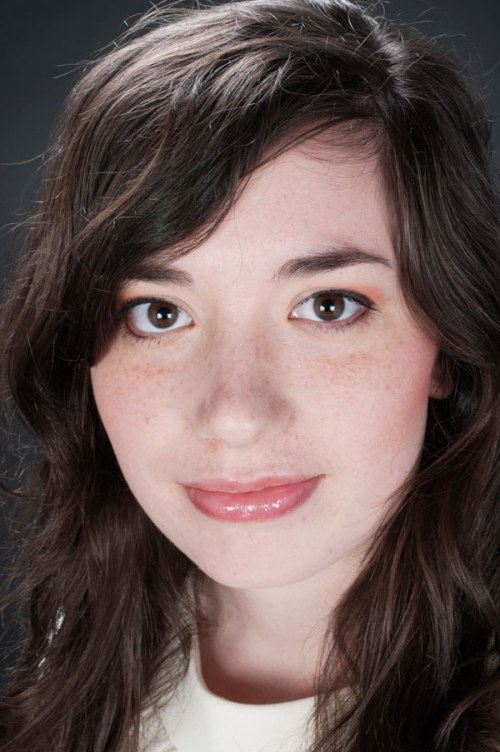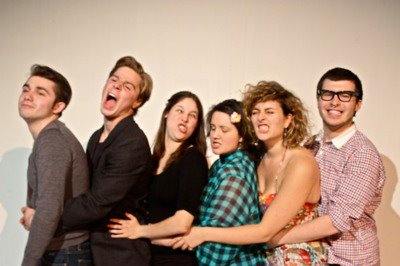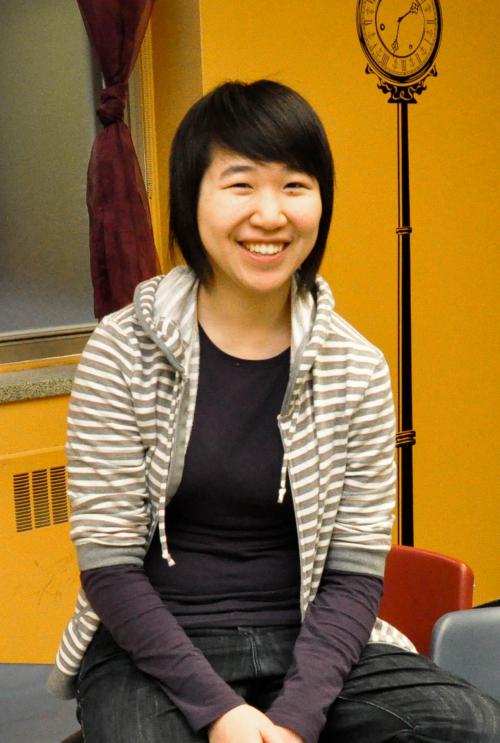 Where do you live? In Montreal’s Plateau, a few blocks from Parc Lafontaine.
Where do you live? In Montreal’s Plateau, a few blocks from Parc Lafontaine.
Where are you from? Hometown? The outskirts of Moncton, New Brunswick.
When did you start writing? When I was in 3rd grade, I wrote a story about a group of space explorers who fall prey to aliens. The whole crew dies. Even as a child, my tragic sensibility shone through.
Why did you start writing? It wasn’t until high school that I started developing my own personal style. I read a chapbook memoir called “Please Don’t Kill the Freshman” by a punk lesbian from Oregon a few years my senior. It blew me away. It detailed in brutal, fresh, honest terms life as a teenager. I remember reading this (and likeminded books by guys like Burroughs, Bukowski, Eggers, Kerouac, and Saligner) and realizing that I could write my way. I could push buttons, stir shit up, and most importantly – I could make things beautiful. I could take the quotidian experiences of pubescent angst – my own insatiable longings and melancholic musings – and turn these (rather crummy) sentiments into something lasting and true. Something that might somehow, I dunno, absolve me. Of what? I’ll never know.
What inspires you? Bears. Babies. Music. Conversation. Tall things you have to crane your neck to see. Long walks. Carl Sagan.
What inspired this play? Strangely, black holes. I say ‘strangely’ because there is little mention of astronomical conceit in the play itself. Quantum physics in general informs most of my work, though there is usually little textual evidence. I got a little obsessed with black holes a couple years ago when I wrote this play. In my research, I found that the edge of a black hole is called the event horizon, and when objects fall into a black hole, the gravitational force at the event horizon essentially stretches, separates, and ‘spaghetti’-fies them. Disturbing, I know. If we were standing outside the black hole watching someone fall in, they would be “redshifting” away, falling into the void. A redshift occurs when the distance between wavelengths increases as an object moves away from us. When we hear an ambulance siren passing, its sound gets lower and softer as it speeds away; this means that the soundwaves are redshifting. I love this word, and thought it similar to the way relationships work. Get too close and you get sucked in and torn apart. This is a play about a wounded, delicate, breakable man who deals with his neuroses in the only way he knows how: he feigns normalcy. He constructs a protective façade. His past keeps him paralyzed, unable to get close to someone for fear of the inevitable redshift, the gravitational pull of romance, and the violent forces of human intimacy.
What do you write other than plays? I’ve written for a variety of different mediums – journalism, literary criticism, speeches, autobiography, press releases, letters, screenplays, poetry, and prose.
Do you have a day-job? What do you do other than writing? I do a little telemarketing to pay the bills. I’m also keen on music, usually revamping songs into ambient acoustic covers, or composing my own. I also take the occasional photograph, and make the occasional video.
What time of day do you write best? I used to only write very early in the morning (when I first woke up) or after midnight (when all the rest of the world went to sleep.) But lately, I find myself more productive in the buzzing hours before evening begins (ie. late afternoon, rush hour.) There’s something about the winding-down of the workday that makes me eager to be proactive. These days, it’s also less about inspiration (channeling the muse, waiting for her to show up…) and more about getting down to business – simply gluing my ass to the chair and writing. I have to trust my fingers.
Where do you write? (coffee shops, home etc.?) I sneak a few paragraphs in at work, but most of my writing is done in solitude, at home. I need to be absolutely alone. Handel helps.
How long did it take you to write this play? The two large monologues that frame the piece were written many years ago, when I was sixteen, a sort of stream-of-consciousness exercise I gave myself. I picked them up again in 2010. The actual construction of the play took about a month.
What do you like best about writing for theatre compared to other mediums? Ultimately, the stage does what no page can. Of all art forms, I believe that theatre has the most potential for affect. Unlike reading a novel, or watching a television show, the immediate tangibility of onstage action witnessed by a live audience produces a visceral, intimate, and unfettered reaction. It takes place within a living, breathing environment – not a page, not a screen. It is unframed and impermanent. These events are there, happening. They are alive, and they die once the curtain falls. They are reborn the following night, or not at all. The viewer is also there, in the flesh, inside the experience. The audience is an element of the space (albeit an unpredictable element) and therefore an essential part of the play, without which the drama would cease to have meaning. For this reason, the theatre is a potential powerhouse of artistic expression. It can encompass text, performance, music, dance, multimedia, design, fashion, and a multitude of other hybrid art forms. The theatre extends beyond itself, and for this reason I feel it deserves much esteem.
What is the greatest challenge you think writers face today? Without a doubt, it is the lack of funding for the arts. The recent cutbacks in grant money for literary magazines in Canada is… disconcerting, to say the least. We need to promote debate and discussion in this vein in order to emphasize the value of artistic diversity and its effect on culture and political economy.
What kind of support do you have for your writing? Writing centres, groups etc. For the most part, I stand alone. However, I’m beginning to build up a network of contacts here in Montreal – readers, writers, editors, teachers, producers, aficionados, etc. C’est La Vie Theatre included!
Do you have a website/blog? Can I contact you? I have a Tumblr: http://edmac.tumblr.com/ And I’m soon to publish my novella “Hydrophilia” through The Trapshot Archives, a small press here in Montreal: http://trapshotarchives.com/










